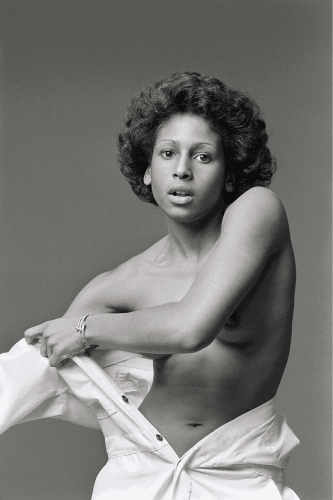In 2001, a friend of mine, the artist Daesha Devón Harris, attended the opening of a Renée Cox exhibition at the Robert Miller Gallery, in New York. At the time, Harris was an eager young photography student constantly looking for Black women to inspire her practice. She loved the Miller show, which featured photographs that had been printed in enormous proportions—some were seven feet high by four feet wide—and which played with historical and religious iconography to explore Black womanhood. As Harris, vibrating with gratitude, was preparing to leave, a sleek black BMW F 750 GS motorcycle rode directly into the gallery, a gray plume of smoke trailing behind it. A woman dressed in head-to-toe black leather turned off the engine and stepped onto the gallery floor, shaking loose her shoulder-length brown locs as she did so—that was Cox.
I love this anecdote, which conveys the style and fierceness of the Renée Cox I know and love. I first met Cox in 2019, after being introduced to her by a friend. At the time, I needed a gig, so I worked as her studio manager for about four weeks, organizing her hard drives and archives. During that time, I got to learn from her, and to know her as an unflinching, brazen, and uncompromising artist.
For the past four decades, Cox, who was born in Jamaica and raised in the U.S., has been making photographs of Black women which cast them as complex protagonists. In a body of work that spans fine art and fashion photography, she has repurposed familiar imagery to broaden the scope of how we envision our deities and our histories. Many of her most powerful works are self-portraits. In “Yo Mama’s Pieta” (1994), Cox appears as a modern-day Virgin Mary, holding the beautiful, limp body of a nude Black man. “Black Panther Last Supper” (1993) features a cast of Black models, including herself, in place of the figures of da Vinci’s painting.


